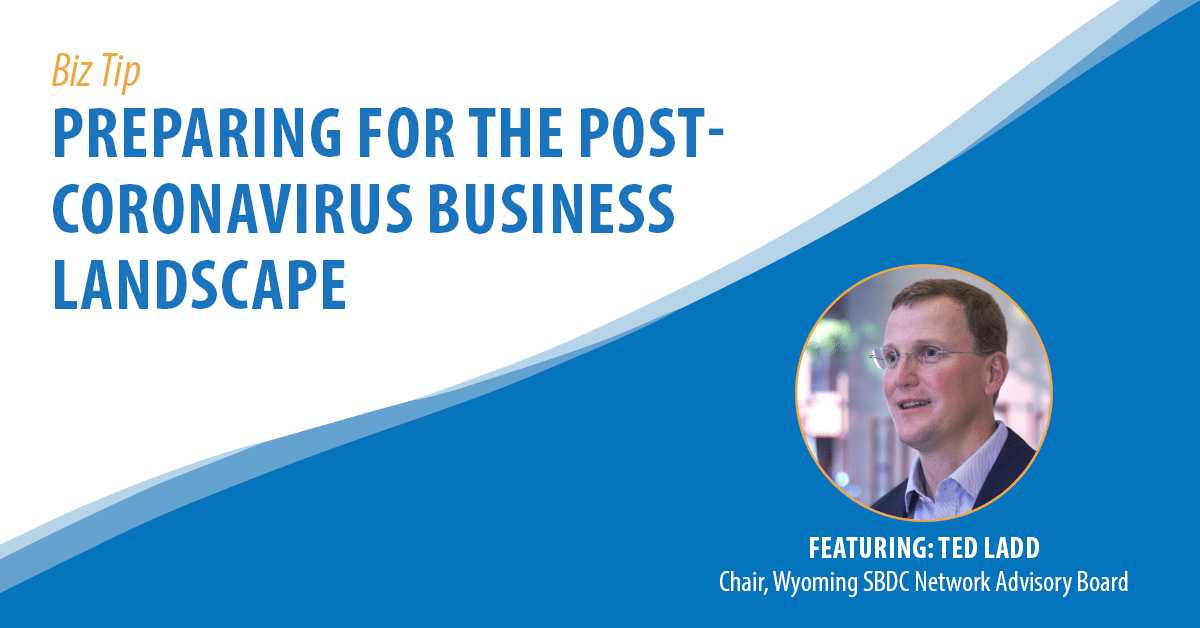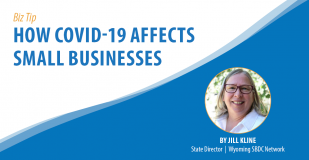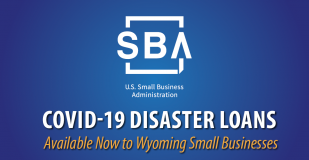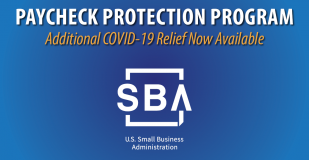Many small businesses in Wyoming are still trying to figure out how to operate during the coronavirus (COVID-19) pandemic, but now is also a good time to make plans for the future. Ted Ladd, chair of the Wyoming Small Business Development Center (SBDC) Network Advisory Board, writes a regular column for Forbes and recently explained how business can prepare for the post-coronavirus business landscape.
Ladd, a Wyoming resident, is the Dean of Research and a Professor of Entrepreneurship at the Hult International Business School as well as an Instructor of Platform Entrepreneurship at Harvard University. He says COVID-19 may have changed the landscape of business forever, but there are steps entrepreneurs can take to adapt.
“Once we emerge from this crisis, business managers can reinvent their product offerings to survive in the post-coronavirus economy in four steps: deconstruction, imagination, testing, and prototyping,” Ladd says. “At the heart of this method is evidence-based decision-making.”
Step 1: Deconstruction
Source: Ted Ladd via Forbes.com:
First, reinvention can be subtle. You could keep most of your core operations to deliver most of your core value to customers, and tweak a few pieces of your business. For example, a company making high-definition computer monitors might still see strong demand for its product, but the customer segment may shift from young tech professionals, who might be running low on cash, to retirees who have discovered the joys of video conferencing with distant friends during the crisis.
…
In order to consider these shifts, the first step in reinvention is deconstruction: understanding each of the constituent pieces of your business. The tool that most business schools (including mine) use to help managers deconstruct their businesses is called the Business Model Canvas. This Canvas contains the nine elements that are common to traditional businesses: customer segment, value proposition, channel, customer relationship, key activities, key resources, key partners, revenues, and costs. If your business does not make anything itself, but instead acts as a platform to connect buyers and sellers, you should use the Platform Model Canvas, which focuses on the facilitation of the interaction between buyers and sellers in a marketplace.
Evidence Matters
Ladd says the main takeaway for businesses looking to adapt to this new reality is that evidence matters.
“This should motivate the way that you seek to improve your business, but also should filter the advice that you consider,” he says. “The approach that I’ve outlined above relies on not just your own research, but also the rigorous, thoughtful work of others.”
Read more about deconstruction in Ladd’s article on Forbes.com. You will also find information on the other three steps and several helpful links to other resources.
Help is Available
If you would like assistance with the Business Model Canvas or preparing for the post-coronavirus business landscape, contact your local Wyoming SBDC Network advisor for no-cost, confidential assistance by clicking here.
A detailed COVID-19 resource page for Wyoming entrepreneurs can also be found at WyomingSBDC.org/covid19.
About the Author: Ted Ladd is the Dean of Research and a Professor of Entrepreneurship at the Hult International Business School, and an Instructor of Platform Entrepreneurship at Harvard University. He founded, led, or otherwise participated in five platform startups. The most recent was acquired by Google to become WearOS. Ted also serves as the Chair of the Wyoming SBDC Network Advisory Board.






